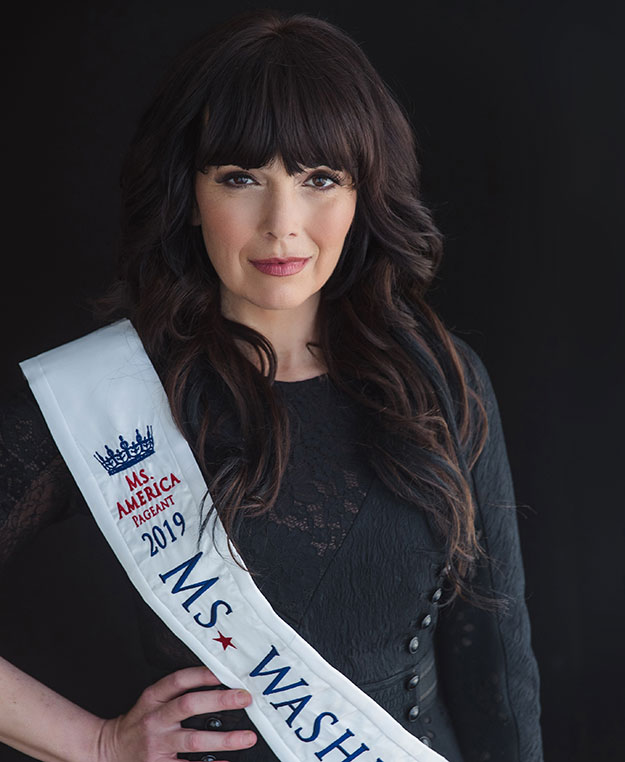For Stephanie E. Wilson, Ms. Washington 2019, participation in the pageant has provided a spotlight for MilitarySexualViolence.org. The nonprofit she founded provides no-fee therapeutic support to any and all survivors of military sexual violence. These services are provided by a volunteer network of peer counselors, prior JAG prosecutors and behavioral health specialists. Most in this network are themselves survivors of military sexual violence.
When Wilson and her family negotiated a series of life-altering traumas in the area of military sexual violence, she stumbled into some critical areas that were lacking in terms of survivor support.
"In direct response to this, I knitted together the initial militarysexualviolence.org framework to sustain the well-being of my own family," Wilson recalled. "The program grew at an astonishingly fast rate through whispers.
 "People in need of support secretly reached out," she continued. "Professionals who wanted to support confidentially reached out. Persons that work within the different military agencies responsible for military sexual violence report, support, investigation and prosecution began to reach out to us from across branches, duty stations and countries with informed advisement as to how to maximize support that is available, as well as give a clear idea as to what support needs to come from outside the military system."
"People in need of support secretly reached out," she continued. "Professionals who wanted to support confidentially reached out. Persons that work within the different military agencies responsible for military sexual violence report, support, investigation and prosecution began to reach out to us from across branches, duty stations and countries with informed advisement as to how to maximize support that is available, as well as give a clear idea as to what support needs to come from outside the military system."
What started small quickly evolved into a global initiative, according to Wilson.
"My role was to simply weave these pieces together to strengthen our support network," she said. "As survivors from JBLM fanned out to other locations through PCS, ETS, or general relocation, these urgent whispers spread nationally, and then globally, at an unprecedented speed. I simply continued to connect those in need with those who could support, regardless of location."
One important aspect of the program is that the military is its own culture, and the organization understands that.
"For us to truly meet survivor needs, it is of the utmost necessity that our support comes with a clear understanding of the delicacies, nuances, realities and truths of military culture," said Wilson. "The majority of our support persons are not only professionals in the area they volunteer in, but are also survivors themselves. All of our support is experienced in military sexual violence, specifically."
In fact, many support personnel have found that their volunteer work has helped with their own healing process.
"Most survivors exist in debilitating isolation," Wilson explained. "Sexual violence rarely occurs only once in a person's lifetime. More typically, it is a series of experiences shrouded in shame that should not be owned by the survivor -- but a shame relentlessly pressed upon them by the perpetrators and the processes put in place to protect.
"Lending a hand to others does not make suffering OK, but it can allow for enough room for acceptance to grow rather than despair to take over. It is the consensus from everyone that is working on this project, that through helping their suffering gains meaning and that his/her own healing has been exponentially magnified."
If you are a victim of military sexual violence, Wilson recommends these steps:
Whether the violence happened today or 40 years ago, know that: You are not alone. It is not your fault. It is not your shame.
Tell someone you trust and who will believe you.
With support, map the appropriate next steps for you.
There is no wrong way to handle your trauma.
Only you can decide what the most appropriate actions are for you. Just do so with a clear understanding of your options andwith support.
If the survivor is a minor, and you are either aware of the perpetration or the minor had disclosed to you, you MUST contact local authorities immediately. In Washington state, mandated reporting is required within the first 48 hours after awareness has been raised.





Read Comments